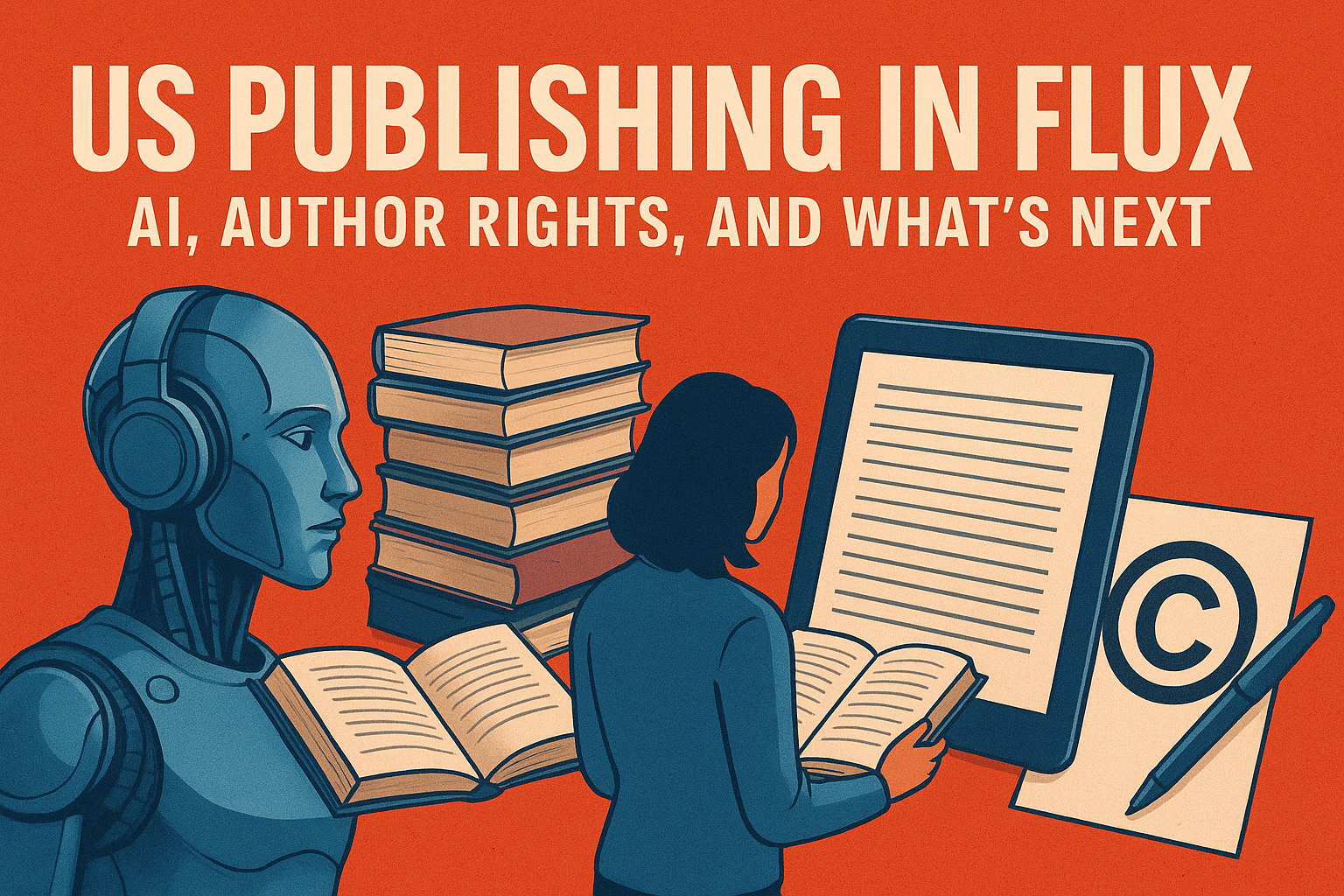US Publishing in Flux: AI, Author Rights, and What’s Next

The U.S. publishing industry is navigating a period of rapid change. From legal settlements over AI training, author pushback, to new contracts and audiobook innovations, multiple forces are realigning what it means to write, publish, and consume books in 2025.
Key Developments
1. Copyright Case: Anthropic Settlement Approved
A federal judge in San Francisco has preliminarily approved a $1.5 billion settlement between authors/publishers and AI company Anthropic. The lawsuit claimed the company used some 465,000 books to train its Claude AI chatbot without permission. Under the settlement, authors and publishers will get about $3,000 per book involved.
This case is seen as a milestone in protecting rights around content used in AI training. It could set important legal precedent for how future AI tools engage with copyrighted works.
2. Authors Push Back on AI Use in Publishing
Over 70 authors — including well-known voices like Dennis Lehane, Lauren Groff, Gregory Maguire — released an open letter calling on major U.S. publishers (Penguin Random House, HarperCollins, Simon & Schuster, Hachette, Macmillan) to commit to policies such as:
Not publishing books generated by AI without author consent or compensation,
Ensuring human audiobook narrators are used,
Requiring transparency about when AI has been used.
This petition gained over 1,100 signatures within a day, showing strong concern among writers about how AI might erode creative control, quality, and fair compensation.
3. Audible Moves Deeper into AI Narration
Audible (an Amazon company) announced a plan to offer AI-narrated audiobooks in partnership with U.S. publishers. Key points:
Publishers will be able to convert existing print or ebook titles into AI-narrated audiobooks.
Over 100 AI-generated voices will be available, covering multiple languages (English, Spanish, French, Italian) with accent and dialect options.
Later this year, Audible aims to introduce AI translation features (text-to-text and speech-to-speech), plus an option for professional linguists to review translations.
These moves aim to expand access and reach of audiobooks — especially titles that haven’t yet been adapted into audio — but also raise questions about voice artist jobs, authenticity, and whether listeners will accept synthetic narration.
4. Big Deals and Notable Books
V.E. Schwab secured a seven-figure deal with Tor Books for her forthcoming novel Bury Our Bones in the Midnight Soil, scheduled for June 2025. The story threads together narratives from the 16th-century Santo Domingo with 21st-century Boston.
The Emperor of Gladness, by Ocean Vuong, was published by Penguin Press in May 2025. The novel draws on the author's experiences in labor and elder care, pushing back against some commonly held ideas of immigrant “success stories.”
R.F. Kuang’s Katabasis, released August 26, 2025, blends academic life, magic, and underworld mythology. Already, its screen rights have been optioned by Amazon MGM Studios.
Implications & Emerging Tensions
These developments highlight several tensions and questions for authors, publishers, and consumers:
Creative control vs efficiency: AI promises cost savings and faster production (especially for audiobooks and translations), but many authors worry it may compromise artistry and the nuanced performance of human narrators.
Legal and ethical frameworks: The Anthropic case underscores the urgency of clearer rules around how copyrighted materials are used in training AI. Authors’ open letters suggest industry norms are shifting, but without formal rules there is uncertainty.
Economic consequences: Major author deals (e.g. Schwab) show that publishers still invest heavily in established talent. But for mid-list authors and newcomers, AI might be seen as both opportunity (lower cost of certain formats) and threat (displacement).
Consumer expectations: Will listeners accept synthetic voices? Will they demand transparency (labels saying “narrated by synthetic voice”)? And how will quality compare in the long run?
Voice actor/community backlash: There’s growing concern from actors, narrators, and authors that AI may undercut their roles. Pressure is mounting on publishers and platforms to commit to ethical standards, royalties, and attribution.
What to Watch
Outcomes of legislation or regulation targeting AI usage in publishing. The U.S. government and/or state levels may begin crafting laws about copyright, training data, voice rights.
How major publishers respond to author demands. Will any commit to formal policies around AI use? Will there be industrywide agreements?
The growth of AI tools offering immersive or multi-voice audio experiences (including spatial audio, context-aware narration). Research is advancing quickly in this area.
How readers respond. Market acceptance (or pushback) will strongly influence how these experiments fare.
Conclusion
In 2025, U.S. book publishing is at a crossroads. On one hand, artificial intelligence offers new possibilities: faster audio conversion, broader reach, multilingual formats, maybe lower cost. On the other, authors and creators are pushing back—over rights, authenticity, creative quality, and fair compensation.
The coming months and years will likely see some battles over regulation, contracts, and ethical norms. But also innovation: how books are narrated, how stories are delivered, and who gets to be part of that process.



